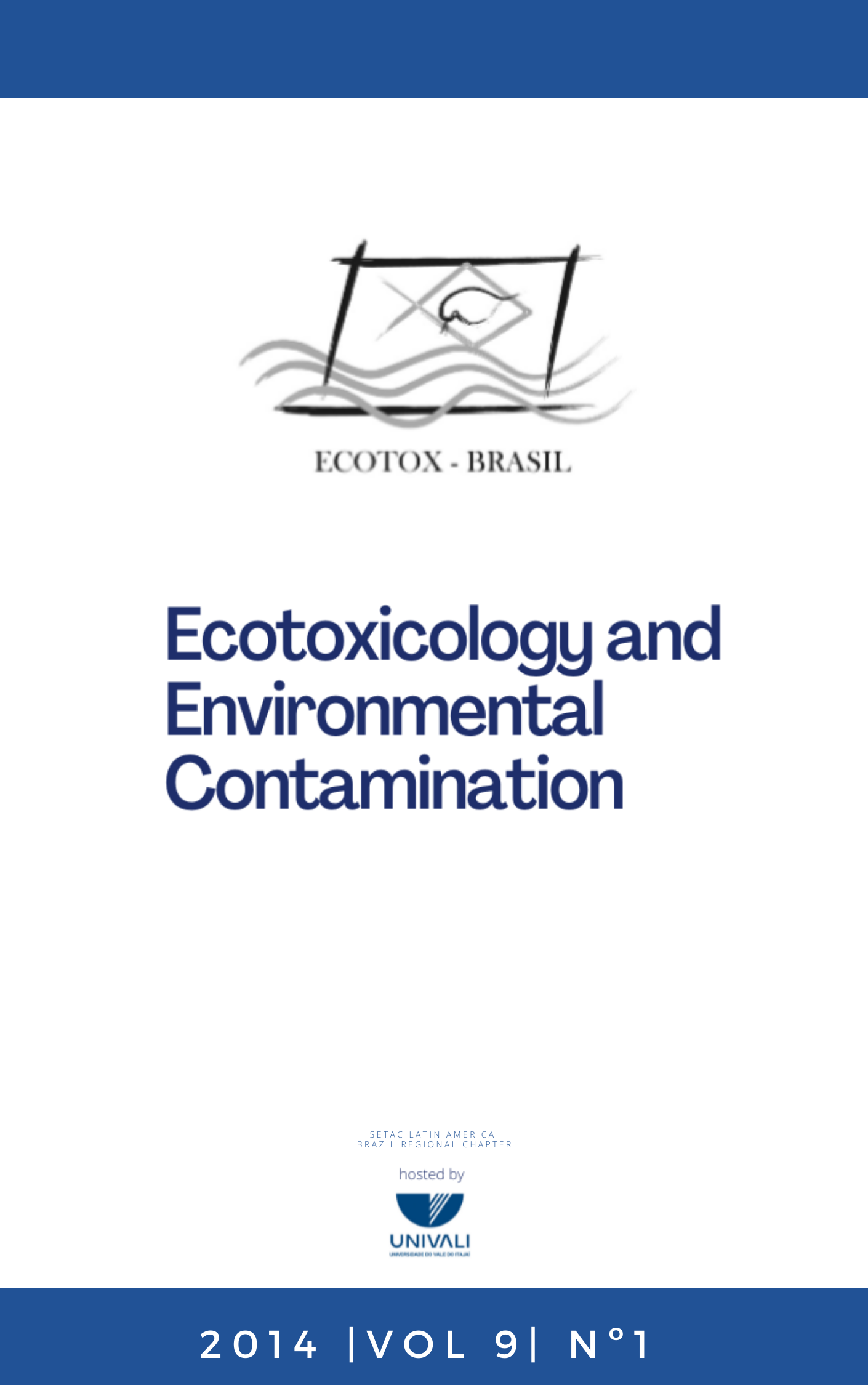Planarians as invertebrate bioindicators in freshwater environmental quality: the biomarkers approach
DOI:
https://doi.org/10.5132/eec.2014.01.001Resumo
Environmental contamination has become an increasing global problem. Different scientific strategies have been developed in order to assess the impact of pollutants on aquatic ecosystems. Planarians are simple organisms with incredible regenerative capacity due to the presence of neoblastos, which are stem cells. They are easy test organisms and inexpensive to grow in the laboratory. These characteristics make planarians suitable model-organisms for studies in various fields, including ecotoxicology. This article presents an overview of biological responses measured in planarians. Nine biological responses measured in planarians were reviewed: 1) histo-cytopathological alterations in planarians; 2) Mobility or behavioral assay; 3) regeneration assay; 4) comet assay; 5) micronucleus assay; 6) chromosome aberration assay; 7) biomarkers in molecular level; 8) sexual reproduction assay; 9) asexual reproduction assay. This review also summarizes the results of ecotoxicological evaluations performed in planarians with metals in different parts of the world. All these measurement possibilities make Planarians good bioindicators. Due to this, planarians have been used to evaluate the toxic, cytotoxic, genotoxic, mutagenic, and teratogenic effects of metals, and also to evaluate the activity of anti-oxidant enzymes. Planarians are also considered excellent model organisms for the study of developmental biology and cell differentiation process of stem cells. Therefore, we conclude that these data contributes to the future establishment of standardized methods in tropical planarians with basis on internationally agreed protocols on biomarker-based monitoring programmes.
Downloads
Publicado
Como Citar
Edição
Seção
Licença
Copyright © 2006 ECOTOX-BRAZIL
Copyright notice: It is a condition for publication that manuscripts submitted to this journal have not yet been published and will not be simultaneously submitted or published of elsewhere. By submitting a manuscript, the authors agree that copyright for their article is transferred to the Sociedade Brasileira de Ecotoxicologia (ECOTOX-Brazil) if and when the article is accepted for publication. The copyright covers the exclusive rights to reproduce and distribute articles, including reprints, photographic reproductions or any other reproduction of a similar nature, including translations. No part of this publication may be reproduced, stored in a retrieval system or transmitted in any form or by any means, electronic, mechanical, photocopying, recording or otherwise, without permission of the publisher.
Notice: While every effort is made by the JBSE, editors and editorial board to see that no inaccurate or misleading data, opinions or statements appear in this journal, they wish to make it clear that the contents of the articles and advertisements published herein are the sole responsibility of the contributors or advertisers concerned. Accordingly, the JBSE, the editorial board and editors and their respective employees, officers and agents accept no responsibility or liability whatsoever for the consequences of any inaccurate or misleading data, opinion or statement.




